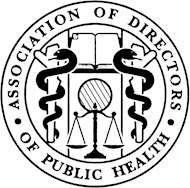 Guest blog by Dr Jeanelle de Gruchy, President of the Association of Directors of Public Health
Guest blog by Dr Jeanelle de Gruchy, President of the Association of Directors of Public Health
To its great credit, New Zealand has become the first country in the world to produce a “wellbeing budget” – a commitment to prioritise population wellbeing as the main mission of the government. A similar philosophy was adopted in Wales in 2015, with the Well-being of Future Generations Act requiring public bodies to think about the long-term impact of their policies on both people and places.
This is a bold and exciting approach for anyone living with a musculoskeletal condition or campaigning for change on their behalf – and for the wider public health community. It puts the highest value on quality of life when it comes to national policy and investment decisions. The Association of Directors of Public Health has long championed taking a whole system and long-term view of how we create and support the health and wellbeing of everyone in society.
What does that mean in practice?
The ADPH recently published updated versions of our life course policy position statements capturing the collective views of Directors of Public Health in local government. There are four documents covering: Best Start in Life, Living and Working Well, Healthy Ageing and Health Inequalities.
Our statement on Living and Working Well focuses on the ‘working age’ population – the approximately 63% of people between the ages of 16-64 – and how to promote healthy, happy and productive lives. We know that the biggest causes of poor health (‘morbidity’) in England are low back and neck pain.
Delivering change means putting a greater emphasis on improving the social determinants of health – such as housing, air quality, education, income and food – factors which overwhelming shape our health and driving down inequalities in how long we live in good health (‘healthy life expectancy’).
It means promoting good mental health by intervening early to prevent the adverse childhood experiences that can have a lifelong impact. We know that along with mental health, poor musculoskeletal health (like back and neck pain) accounts for the majority of sickness absence in the UK, making this an issue of concern beyond the health sector. As ARMA highlights in its policy paper Musculoskeletal and Mental Health, we need to understand the inter-relationship between MSK conditions and mental health rather than treating them in isolation.
It means enabling people into good work and creating healthy workplaces which prevent many musculoskeletal conditions arising, as well as supporting those with musculoskeletal conditions to thrive in work.
These are all areas that need to be addressed in the upcoming green paper on prevention.
 Finally, more funding for public health is now critical. A spending review is expected at some point this year and there is a growing consensus that public health investment – in its widest sense – must be a priority. In February, ARMA – and many of its members – signed up to a public letter in the Times, coordinated by ADPH and supported by 54 organisations, setting out the case.
Finally, more funding for public health is now critical. A spending review is expected at some point this year and there is a growing consensus that public health investment – in its widest sense – must be a priority. In February, ARMA – and many of its members – signed up to a public letter in the Times, coordinated by ADPH and supported by 54 organisations, setting out the case.
The government has the welcome ambition to improve healthy life expectancy so that, by 2035, we are enjoying at least five extra years of healthy, independent life, whilst closing the gap between the richest and poorest. If the public health funding gap continues to grow, this ambition will not be met, with the costs being borne by the NHS, the economy and individuals.
We look forward to working with ARMA in the months ahead to raise the voice of public health and echo the call recently made by the APPG on Wellbeing Economics for a spending review which walks the walk on wellbeing.


We fully agree with points raised by Dr Jeanelle de Gruchy.
e.g. We should do far more to ensure that workplaces are health promoting.
e.g. Greater funding is needed by public health teams working in LAs.
We also think there is a need to include accident prevention as a key area in the forthcoming Green Paper on Prevention
https://www.bmj.com/content/364/bmj.l860/rr